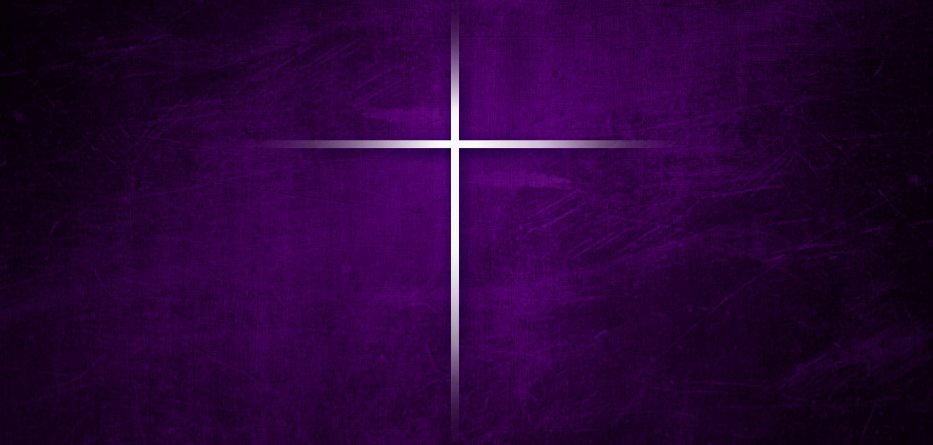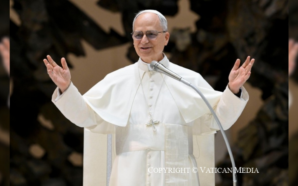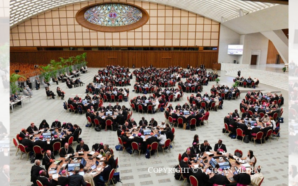Living the 40-day season of preparation for Easter within the constraints of a daily pattern that remains largely unchanged
We are now in the early days of Lent and the great Paschal feast is still weeks away.
The Lenten season is spent in different ways by different people. Some give up something, while others take on a new challenge. And others of us might try to read a little more or set aside greater time for prayer in a busy world.
Yet in the end we each prepare ourselves in an individual way; we become for a few weeks a small island of experience.
We move out to the margin and silently watch the surging sea break on the sand edge, smooth stones and shale, rolled and salt washed. We take some time to be alone with the Lord, time maybe to listen.
That in itself can be an immense challenge, it takes courage to face squarely who we are. Open grassland, treeless and torn by the wind’s rage, empty distance beyond the fence, where sea-wail and sky-howl touch the moon-cold night.
This can be an awesome place of utter loneliness where words lead back in loops unless abandonment is complete — this distant, desolate, island home.
By nature we are gregarious, enjoying the company of family and friends, the nights out, holidays, meals, and the day-to-day busyness of life.
A time to listen
That gives rise to two different standpoints. Some long for the peace and quiet of solitude, worn to a frazzle by their style of living. Others find the experience threatening and feel uncomfortable without the buzz they have grown used to.
Maybe that is why liturgical action so often involves words and song, readings and sermons. The space between words, the silence of stillness, is lost and we feel bereft.
We can recapture that stillness in the remoteness of an island when the dissolving darkness at the sky’s edge makes way for a thread of orange, a breeze from the ocean.
After the storm, the distant tide begins to turn and you can walk the shore again. There you can find a personal place of solitude where only gulls wheel and screech, hunting for food, a place of isolation, where your voice, calling across the sand, receives no reply. A time to listen.
In such time, we can find a place of peace. As slowly we walk the stirring sea-edge, expecting nothing, no-one calls our name. A time to listen.
But only a very few of us can manage the time of emptiness that an island offers.
A time to think
Lent has to be lived within the constraints of a daily pattern that is largely unchanged. The considered time must be found through the familiar patterns of each day. Somewhere (beyond that Island) a clock names the hour of early morning prayer.
A nearby church or a local abbey gently reminds us of the time. There, only the sea swell moves ever closer. Between sunrise and evening we walk, each listening to the Word, returning to the point of our departure, between the running water and the rising land.
We live the experience, each speaking the Word, returning to our home. The many silent stones we gathered listen high on the hillside of our Island, awaiting our return.
We have all met the occasional person who manages to live their life at a gentler pace, those who have slowed down and show a greater consideration for others, those whose response to a question or comment is not rushed and ill-thought through but values the quality of the exchange.
In one of the Sherlock Holmes stories, Watson is told by his friend that “this is a two-pipe problem”. In other words, let me think about that a bit.
Too often we are quick with our answers on matters of faith and morality when, really, we should look more at the options and context. We easily forget that black and white are separated by many shades of grey.
A time to ask difficult questions
Maybe that is what Lent gives us — more time than usual to ask the difficult questions, not of others but of ourselves. And if the answers are not immediate, then we should not worry.
Not all questions have answers that are obvious, but the asking of the question at least means we have considered an issue important enough to question. Our waiting patiently is our search for faith.
One of my grandsons often started a discussion with the words, “Grandad, I have a question!” Some were easy to answer, others demanded language and ideas that were beyond him at the time.
Still others were unanswerable but were important. I had to get across to him that thinking that a question needs an answer didn’t always mean one that came gift-wrapped.
There is always a challenge facing the Church, never more so than in our own time.
Remember the high cost of Russian aggression being paid by the people of the Ukraine as they fight to save their country, street by street, town by town. Life-changing decisions are being taken by ordinary people as they leave family and friends and join the streaming multitude seeking safety in another land.
I wrote these words a few days ago.
Kyiv Winter of ’22
Far away in Eastern Europe
another country has turned to threaten peace
with the turmoil and high cost of full-blown war.
as speechless with fear we look on.
Remember the troops in the streets of Budapest
in the late November chill of Autumn of ’56
and the sea-born standoff in the Western Atlantic,
ten days when youth faced age in mid-October of ’62.
The Prague Spring quickly faded in sunlit August of ’68
for once again tank tracks rattled through city streets
now repeated all these years on in late Winter of ’22
as the aftershock of gun fire stuttering in the skies
of the Western world and an obdurate Soviet
leader wags a defiant finger as his militia
roll through the suburban streets of Kyiv
and missiles end their flight in a ball of liquid flame.
The outcome is uncertain as countries
hover on the brink of indecision.
Touch this ravaged, tear-soaked earth as you walk
the Emmaus Road with gentle faith of healing.
We must be confident in the Lord’s own promise, that the Spirit will be with us always.
Chris McDonnell is a retired headteacher from England and a regular contributor to La Croix International.
With thanks to Chris McDonnell and La Croix International, where this article originally appeared.








